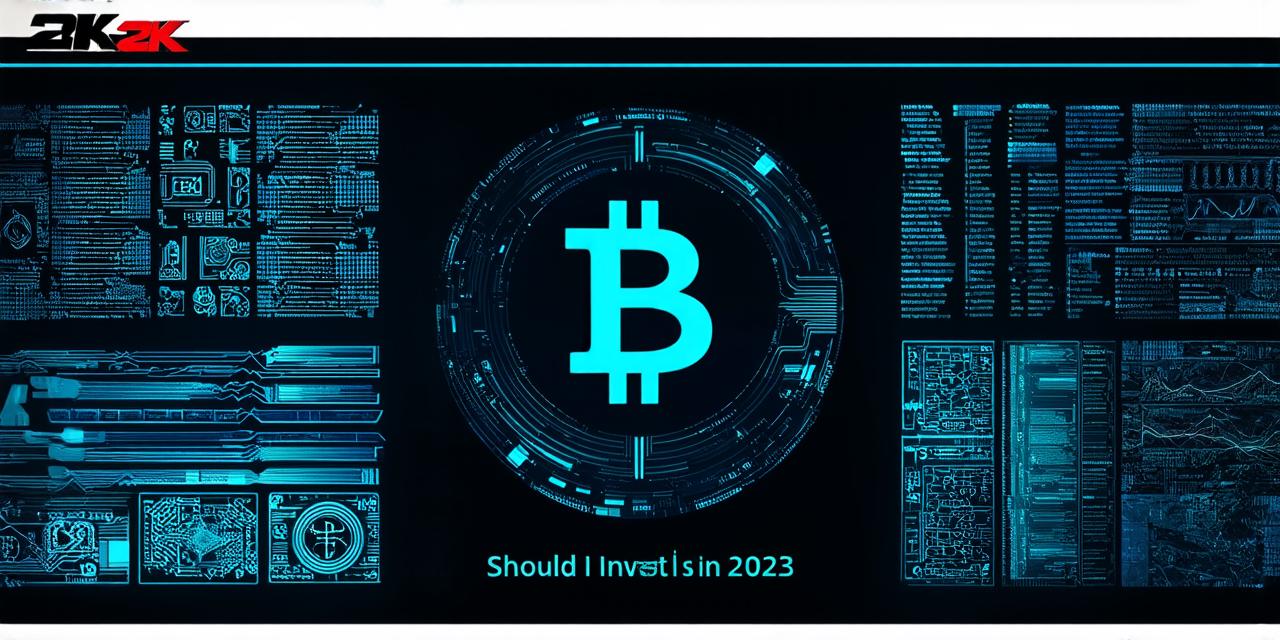
Should i invest in crypto 2023
Blockchain technology is a decentralized digital ledger that records transactions and data across a network of computers. It was first introduced with the creation of Bitcoin in 2009, and since then, it has become the foundation for many other cryptocurrencies, such as Ethereum, Litecoin, and Ripple.
What is Blockchain Technology?
Blockchain technology is a decentralized digital ledger that records transactions and data across a network of computers. It was first introduced with the creation of Bitcoin in 2009, and since then, it has become the foundation for many other cryptocurrencies, such as Ethereum, Litecoin, and Ripple.
The concept behind blockchain technology is to create a secure and transparent way to record transactions and data without the need for a central authority or intermediary. Each block in the chain contains a list of transactions, and once a block is added to the chain, it cannot be altered or deleted. This makes the ledger tamper-proof and ensures that all participants have access to the same information.
One of the main benefits of blockchain technology is its decentralized nature, which means there is no single point of failure. This makes it much more difficult for hackers to steal or manipulate data on the ledger. The decentralized nature also means that there is no need for intermediaries such as banks, making transactions faster and cheaper.
Another benefit of blockchain technology is transparency. Every transaction on the ledger is visible to all participants, making it easier to track and verify the authenticity of the data. This helps to prevent fraud and ensures that everyone has access to the same information. The decentralized nature of blockchain technology also means that there are no single points of authority, which makes it much more difficult for governments or other entities to manipulate or censor transactions.
Interesting:
Blockchain technology also offers a high level of security. Because each block in the chain contains a list of transactions, any attempt to alter or delete data would require changing all subsequent blocks in the chain. This makes it virtually impossible for hackers to tamper with the ledger without being detected. Additionally, because the ledger is distributed across a network of computers, there is no single point of failure, making it much more difficult for hackers to compromise the system.
Risks of Blockchain Technology
While blockchain technology offers many benefits, there are also some risks to consider. One of the main risks is the potential for scalability issues. As more people use blockchain-based technologies, the network can become congested and slow, leading to longer transaction times and higher fees. This can make it difficult for businesses to operate efficiently and can limit the adoption of blockchain technology by some industries.
Another risk associated with blockchain technology is the lack of regulation. Unlike traditional financial systems, which are regulated by governments and central banks, blockchain-based technologies are largely unregulated. This means that there is no guarantee that your investment will be protected by laws or regulations, making it a high-risk proposition for some people. Additionally, because blockchain technology is decentralized, there may be difficulty in enforcing laws or regulations across the network, making it difficult to prevent illegal activities such as money laundering or terrorist financing.
Finally, the decentralized nature of blockchain technology can also make it difficult to resolve disputes between participants. Because there is no central authority to turn to, any disagreements must be resolved through consensus-building processes, which can be time-consuming and inefficient. This can make it difficult for businesses or individuals to quickly resolve disputes or recover lost funds, which can limit the adoption of blockchain technology by some industries.


